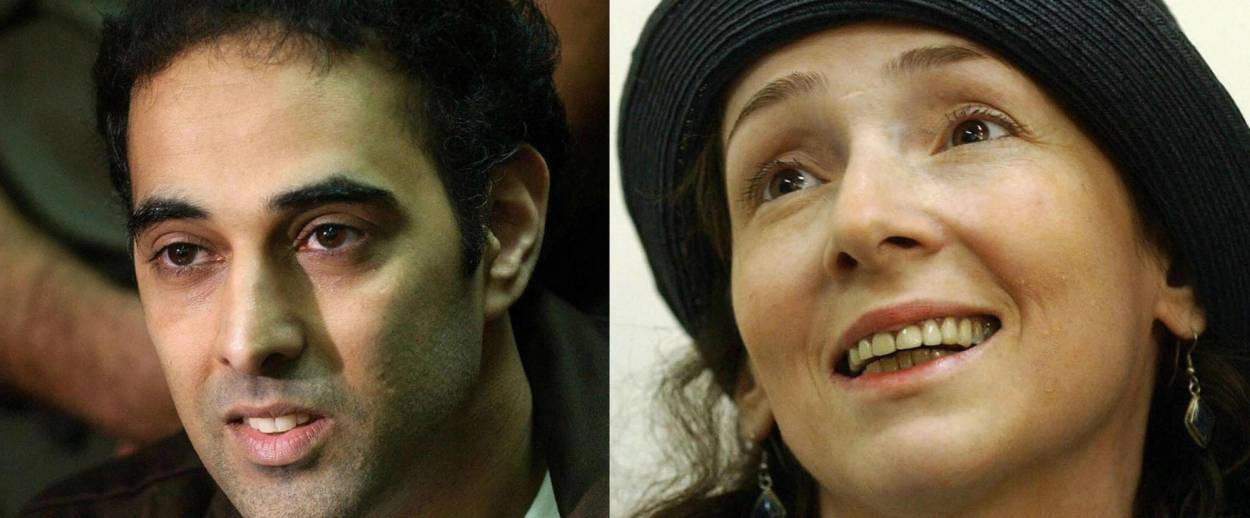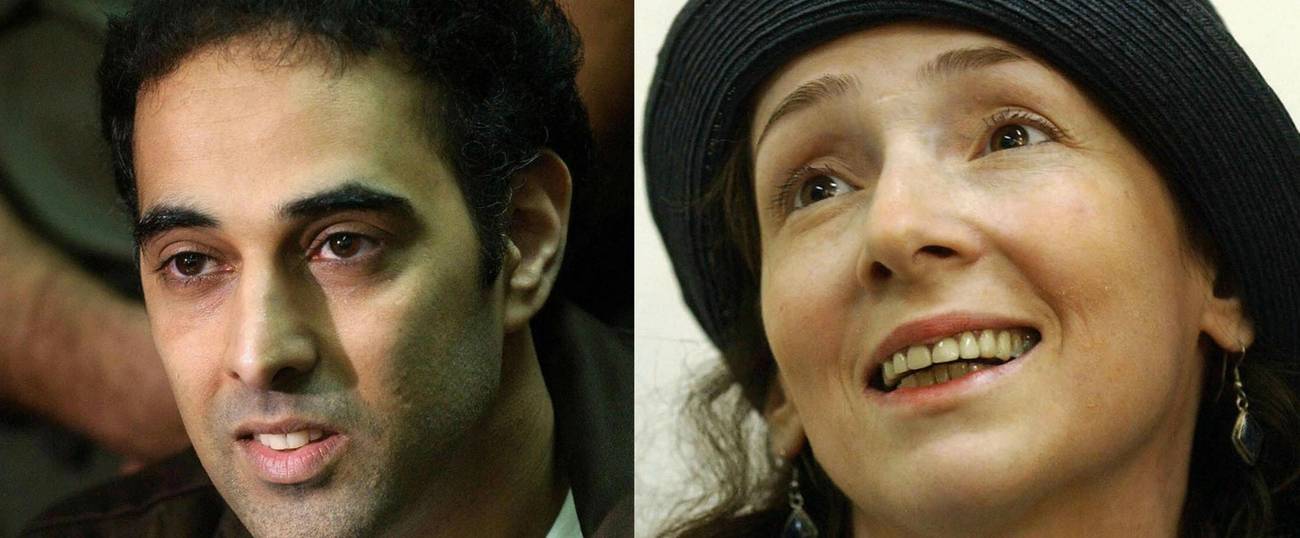The Legacy of Yitzhak Rabin’s Killer—and His Wife
A controversial new documentary focuses on a sensational love drama rather than the loss of a leader and its impact on a still-reeling Israeli society




Almost twenty years has passed since Yitzhak Rabin’s assassination, but it is still an open wound for many Israelis. The state’s formal ceremonies go on annually, as well as the politician’s speeches that come with them. But if you dig deeper into the collective consciousness of the Israeli general public, you might discover the grim reality of the lost memory of the late Prime Minister, his legacy and the implications of his murder on Israel’s society: Open your eyes and ears and you will find growing crowds that preach and glorify the ideologies of Rabin’s killer, Yigal Amir.
Usually, it stays underground, but sometimes it spills over to the headlines, either by political violence that is incubated and nourished within the radical right, or through film, like the new documentary, Beyond The Fear. The film focuses on Amir’s private life since being sentenced to life in prison in 1996, and his awkward romantic relationship with Larissa Trembovler, his wife and the mother of his only son, Yinon.
Beyond The Fear is co-directed by Herz Frank, who immigrated to Israel from Latvia in 1993, and Maria Kravchenko, who is from the former Soviet Union. In 2003, Frank began to follow Trembovler with his camera with the goal of figuring out her source of attraction to Amir, a most vilified prisoner, and her motivation in fighting for a bizarre love story that could never be realized under normal terms since her love object was locked behind thick walls with no future as a free family man. (Recall that Amir was granted conjugal visits with Trembovler—he was caught trying to pass a bag of semen to his wife in 2006—and in 2007 they had a son; Amir also spent nearly two decades in seclusion.) After Frank died in 2013, Kravchenko, previously his editor, took over directorial duties and completed the film. In fact, the documentary is dedicated to Frank, who is appears in the film more than Amir.
Beyond The Fear premiered in Riga film festival last winter, then internationally at Toronto’s Hot Docs and the San Francisco Jewish Film Festival. This summer, it was accepted to the Jerusalem Film Festival, which provoked a debate over Amir’s punishment, his right to a private life despite being a cursed public figure, as well as the filmmakers’ right to free speech. Some Israeli politicians have insisted on banning the film, including Culture and Sport Minister Miri Regev, who called for a public boycott, and former Israeli president Shimon Peres, who attacked the decision to screen the movie in Jerusalem, claiming it disgraced the name of his late friend Rabin while showing empathy to his killer, despite never actually having seen it.
“Let’s say someone wakes up tomorrow and uses the freedom of speech to offer to murder someone,” said Peres. Is this the freedom of speech?”
But the Israeli artists, along with the film making community, protested and demanded on a screening so viewers could judge the representation of Yigal Amir for themselves. Organizers of the Jerusalem Film Festival refused to censor the “artistic creation on the basis of the subject matter.”
Beyond The Fear works hard to present a biased, artificial debate in order to enhance the drama and the importance of their movie. In order to create some forced drama, Frank and Kravchenko use sensation-driven tabloid headlines from Rabin’s murder, as well as interviews with Israelis who damn Amir on screen. But what they don’t bother to portray—since it doesn’t serve them at all—is the apathy from parts of Israeli society to the specifics of that critical event of winter 1995. The film ignores the political context surrounding Rabin’s murder and its traumatizing effect on Israeli society today. Rather than conducting a broader search of support for Amir’s actions in Israeli society. Instead, Frank and Kravchenko curiously zoom in on Trembovler’s intimate support of her man in her own household. You won’t find any questions about Amir’s sins—only about the woman he loves.
Said Amos Gitay, the veteran Israeli director of Rabin, The Last Day: “Enough talking about Yigal Amir, we should start talking about Rabin again.” Gitay’s film, which was selected to compete at the Venice Film Festival next month, analyzes the events that led to Rabin assassination by the hands of Amir, on November 4, 1995. Rabin, The Last Day wasn’t supposed to serve in opposition to Beyond The Fear, but his words certainly were. Gitay believes that Rabin’s loss should concern us more than the person responsible for ending his life.
But on the merits of gossip, Beyond The Fear seems like a story that should be told in detail. Trembovler, who left her husband in 2003 for Amir after visiting him in jail, is an Orthodox Jew. Yet in the film, Trembovler doesn’t share any juicy stories, and even her ex-husband (and father of three mutual kids) is tight-lipped when he talks on camera about this odd family drama. And Amir? Well, he is not even allowed to speak about this intimate issue, or any other topic for that matter, since he serving a life sentence. Thus, one of the only ways for the filmmakers are able to move beyond these barriers is to record Amir’s phone conversations from prison, including with his seven-year-old son, Yinon, probably the only fruitful result of their virtually long distance relationship.
Rabin’s murder is a long-gone memory, which has been preserved in an institutionalized way, with formal ceremonies organized by the government every November. But apparently, just the mention of Yigal Amir’s name is enough to spark controversy in Israel, regardless of whether or not he is actually an interesting person (Frank and Kravchenko clearly thought so.) But with no real insights or emotions from within this distorted family, the only drama left is the one created by sensationalizing their social backdrop. But this, too, feels vacuous, a fictionalized attempt at drama that is as artificial a legacy of Rabin’s murder in the artistic private sphere, as it is in public sphere wherein Israeli media, its government, and even Israeli citizens continue to deal with the mess of Rabin’s death in daily life without a real lens.
Previous: Rabin’s Assassin Endorses Naftali Bennett
Rabin’s Assassin Departs Solitary
Related: Fruitful
Dissonance
Amir Bogen is a film journalist.